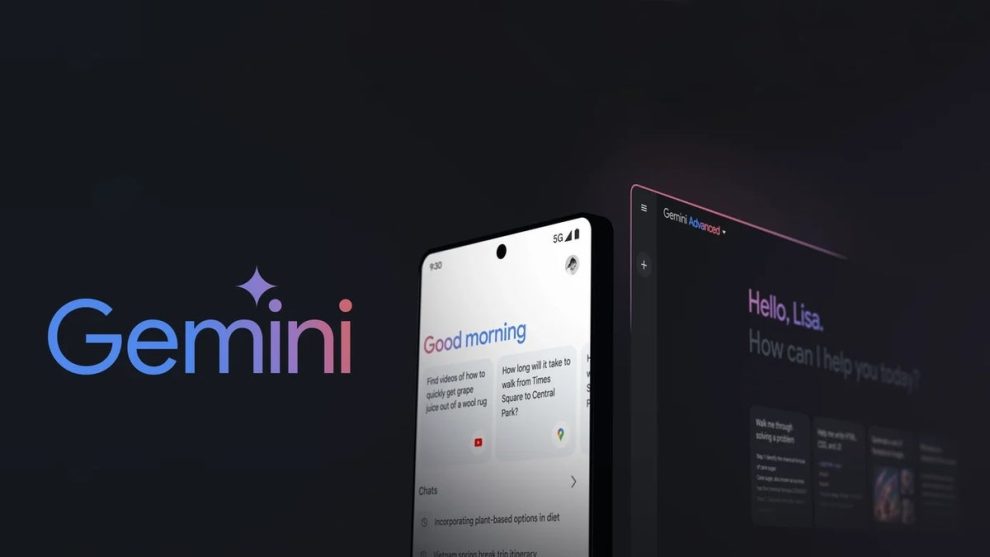Google’s AI assistant Gemini is poised to offer seamless integration with popular apps like WhatsApp, Spotify, and Google Messages. This leap forward in functionality promises to enhance user experience and streamline daily digital interactions for millions of Android enthusiasts worldwide.
Since its introduction, Google Gemini has been steadily climbing the ranks of importance within the tech giant’s portfolio. Sarah Chen, a senior product manager at Google, explains the significance of this latest development:
“Gemini represents the next generation of AI assistants. We’re not just creating a tool; we’re building an ecosystem that understands and anticipates user needs across multiple platforms and applications.
This vision is now taking shape with the introduction of native extensions for some of the most widely used apps on Android devices.

Breaking Down the New Extensions
WhatsApp Integration: Messaging Made Effortless
The new WhatsApp extension for Gemini is set to revolutionize how users interact with the popular messaging app. Mark Thompson, a beta tester, shares his experience:
“It’s incredibly intuitive. I can now ask Gemini to send a WhatsApp message to my wife, and it opens the app directly and prepares the message. The speed difference is noticeable compared to the old Google Assistant method.
This seamless integration not only saves time but also reduces the friction in daily communications.
Spotify: Your Personal DJ Gets Smarter
Music lovers have reason to celebrate as well. The Spotify extension brings a new level of intelligence to music streaming. Lisa Rodriguez, a music industry analyst, comments:
“This isn’t just about playing songs. Gemini’s integration with Spotify means it can understand context and mood, potentially curating playlists on the fly based on your listening history and current preferences.”
Importantly, this feature is available to both premium and free Spotify users, democratizing access to AI-enhanced music experiences.
Google Messages: Native Communication Enhanced
The integration with Google Messages further cements Gemini’s position as a central hub for Android communication. John Lee, a software engineer at Google, explains:
By deeply integrating with Google Messages, we’re enabling Gemini to understand the context of your conversations. This means more relevant suggestions and actions based on your messaging habits.”
What sets these new extensions apart is their ability to learn and adapt to individual user behavior. Emily Zhao, an AI ethics researcher, offers her perspective:
“The real power here lies in personalization. Gemini will learn which extensions you prefer for specific tasks, like always using WhatsApp to message your family or Spotify for your workout playlists. It’s AI that molds itself to your life, not the other way around.”
This level of personalization raises both excitement and questions about privacy and data usage.
The journey to these new extensions wasn’t without challenges. David Patel, a lead developer on the Gemini team, shares some insights:
“Transitioning from Google Assistant Actions to native Gemini extensions required rethinking our entire approach. We had to balance functionality with user privacy and ensure seamless performance across a wide range of Android devices.
The team’s efforts appear to have paid off, with early tests showing significantly faster response times and more accurate interactions.
While the current focus is on WhatsApp, Spotify, and Google Messages, the potential for expansion is vast. Karen Nguyen, a tech industry analyst, speculates on the future:
“This is just the beginning. Imagine Gemini integrating with your calendar, your fitness apps, your smart home devices – all learning and adapting to your personal habits and preferences. We’re looking at the early stages of truly personalized AI assistance.”
As news of these developments spreads, Android users are expressing a mix of excitement and caution. Tom Baker, a long-time Android enthusiast, shares his thoughts:
“I’m really looking forward to trying this out. The idea of having my AI assistant work seamlessly with the apps I use most is appealing. But I’m also curious about how my data will be used and protected.”
Google has been quick to address such concerns, emphasizing their commitment to user privacy and data security.
While an official release date hasn’t been announced, the fact that these extensions are functional in beta suggests a public rollout may not be far off. Sarah Chen from Google offers a hint:
“We’re in the final stages of testing and optimization. Our goal is to ensure a smooth, bug-free experience for all users before we launch. We’re excited to get this into the hands of our Android community soon.”
As I wrap up my reporting from Google’s Android hub, the excitement is palpable. The integration of Gemini with popular apps like WhatsApp, Spotify, and Google Messages marks a significant milestone in the evolution of AI assistants on Android.
This development promises not just convenience, but a more intuitive and personalized mobile experience. As Google continues to refine and expand Gemini’s capabilities, we may be witnessing the dawn of a new era in how we interact with our smartphones and the digital world around us.
For Android users, the future looks bright, more connected, and smarter than ever before.
















Add Comment